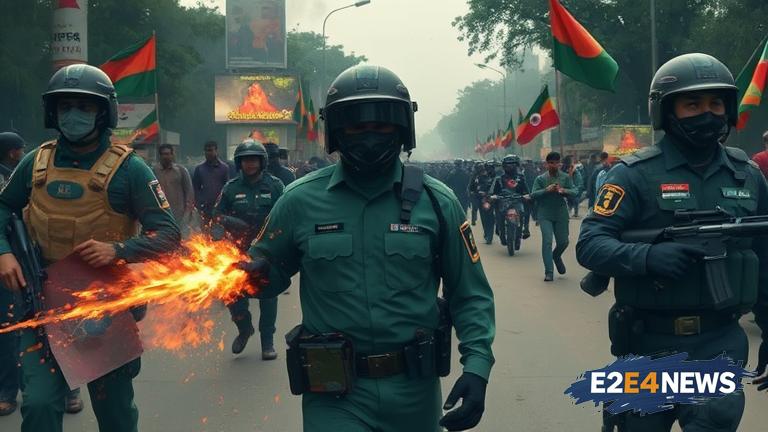The July protests in Bangladesh were marked by violence and bloodshed, with many protesters taking to the streets to demand justice and accountability. However, an investigation has revealed that the situation was far more dire than initially thought, with numerous protesters being shot with live ammunition. The use of excessive force by law enforcement has sparked widespread condemnation and raised serious concerns about the state of human rights in Bangladesh. According to eyewitnesses and medical reports, many of the protesters who were shot suffered injuries to their heads, chests, and limbs, with some even succumbing to their wounds. The investigation has found that the police and other law enforcement agencies used live ammunition, tear gas, and batons to disperse the crowds, resulting in a significant number of casualties. The protesters, who were largely peaceful, were demanding justice for a range of issues, including corruption, inequality, and human rights abuses. Despite the peaceful nature of the protests, the authorities responded with brute force, leading to a breakdown in law and order. The investigation has also revealed that many of the protesters who were shot were not even participating in the protests, but were simply bystanders who got caught in the crossfire. The use of live ammunition has been widely condemned, with many arguing that it is a clear violation of human rights and international law. The Bangladesh government has faced intense criticism for its handling of the protests, with many calling for an independent investigation into the use of force. The international community has also weighed in, with the United Nations and other human rights organizations expressing concern over the situation. The protests in Bangladesh are just the latest example of the growing trend of unrest and discontent in the country, with many citizens feeling frustrated and disillusioned with the government. The government has promised to investigate the incidents and bring those responsible to justice, but many are skeptical about the likelihood of meaningful action being taken. The investigation has highlighted the need for greater accountability and transparency in Bangladesh, particularly when it comes to the use of force by law enforcement. The government must take concrete steps to address the concerns of its citizens and ensure that the rights of all individuals are protected. The situation in Bangladesh is a stark reminder of the importance of upholding human rights and the rule of law, even in the face of unrest and instability. The international community must continue to monitor the situation closely and press the government to take meaningful action to address the concerns of its citizens. In the meantime, the people of Bangladesh will continue to demand justice and accountability, and it is the responsibility of the government to listen to their concerns and take concrete steps to address them. The use of excessive force by law enforcement is a serious issue that must be addressed, and the government must take immediate action to prevent such incidents from happening in the future. The investigation has also highlighted the need for greater training and accountability within the police force, to ensure that officers are equipped to handle protests and other situations in a peaceful and respectful manner. Ultimately, the situation in Bangladesh is a complex and multifaceted one, and it will require a sustained and concerted effort to address the underlying issues and ensure that the rights of all individuals are protected.
